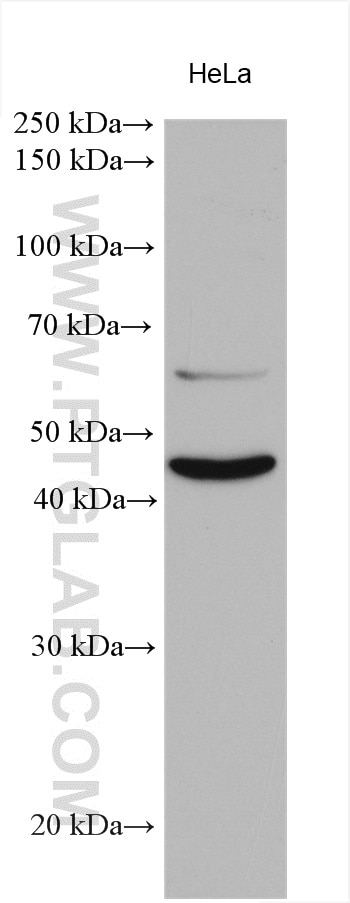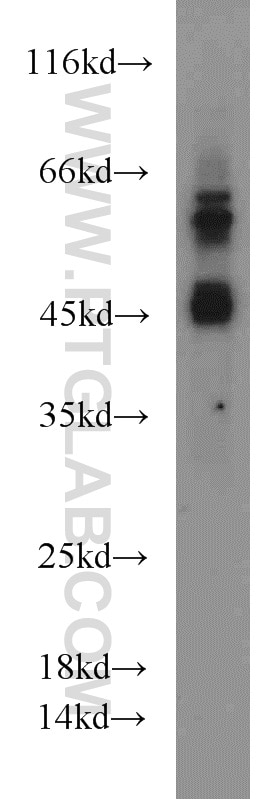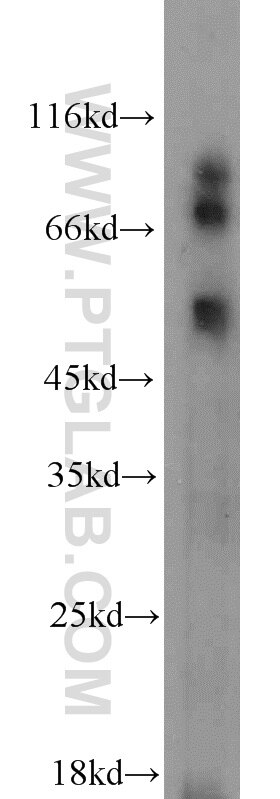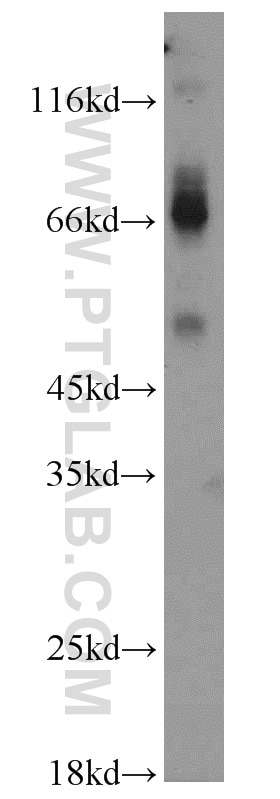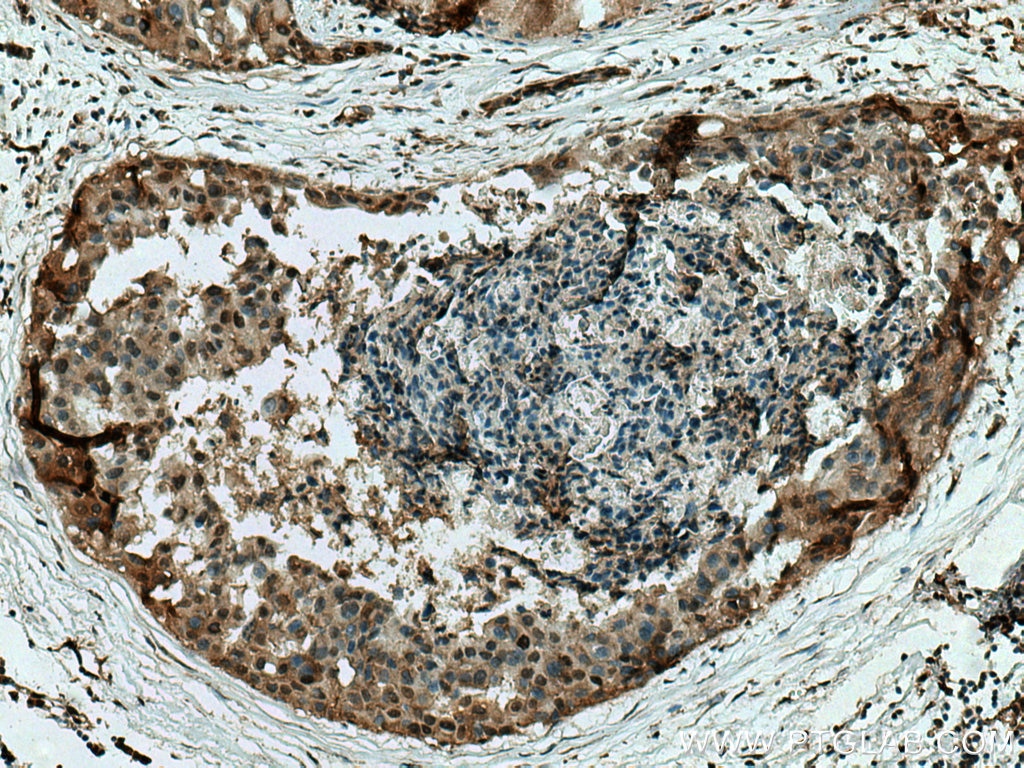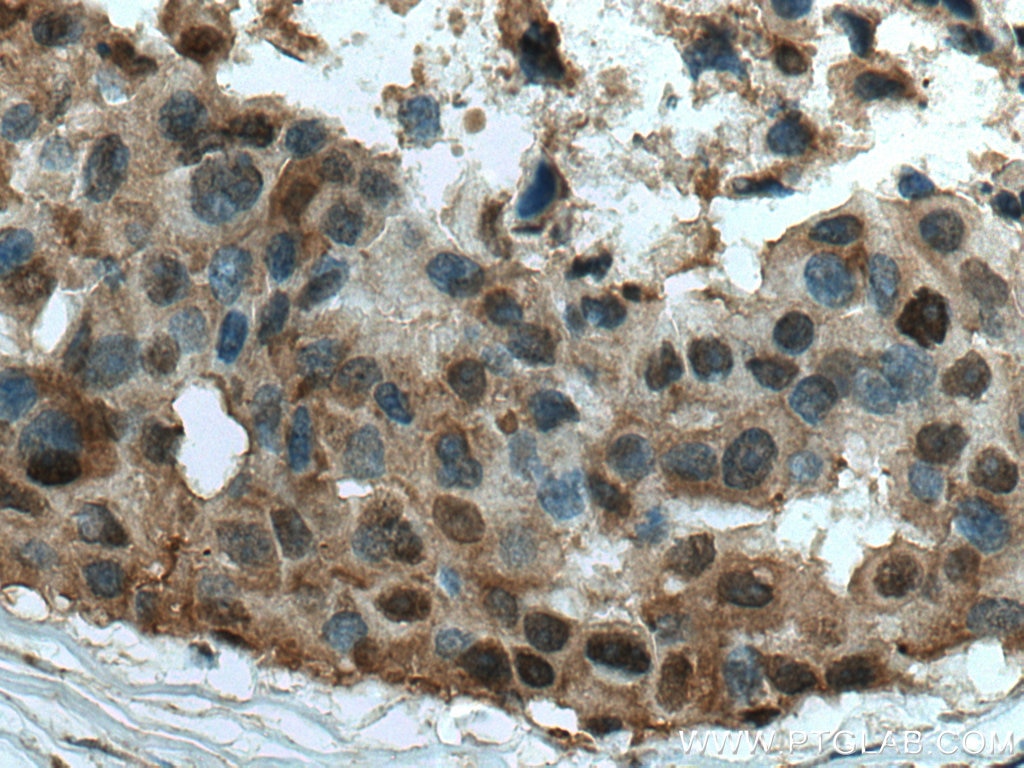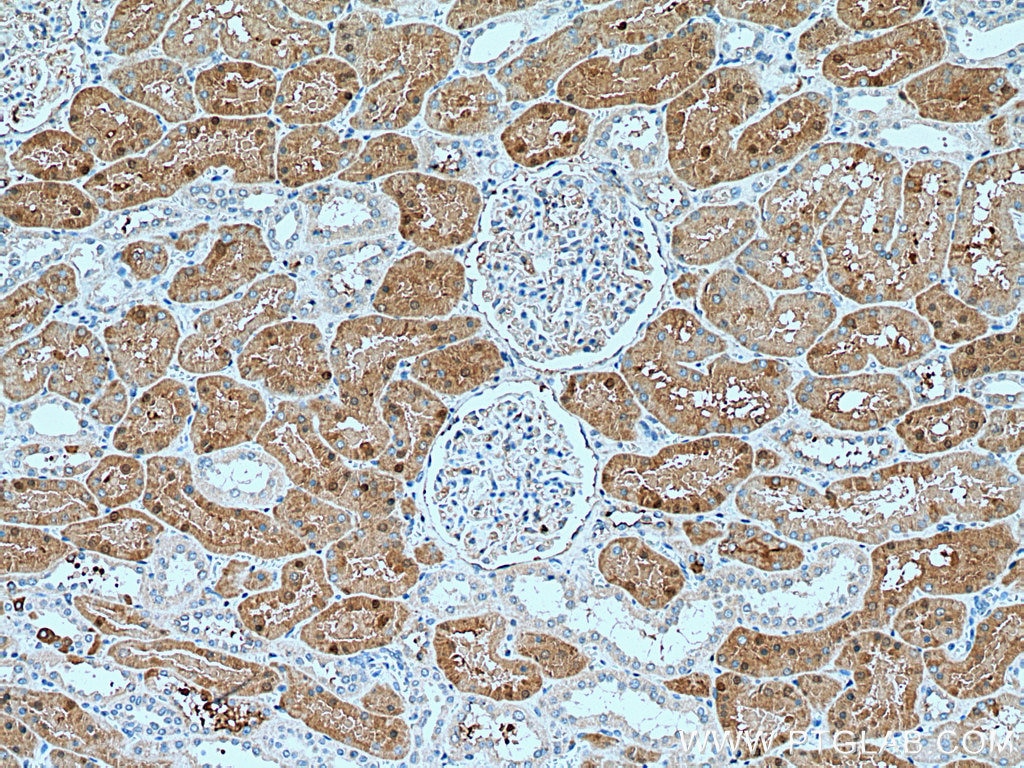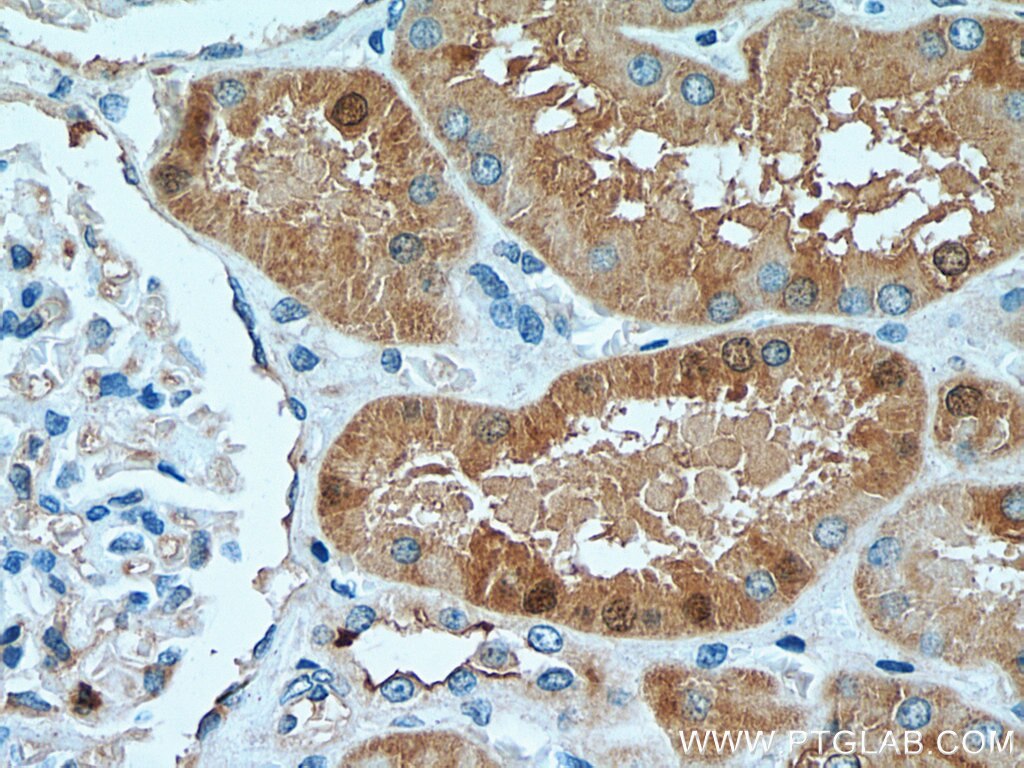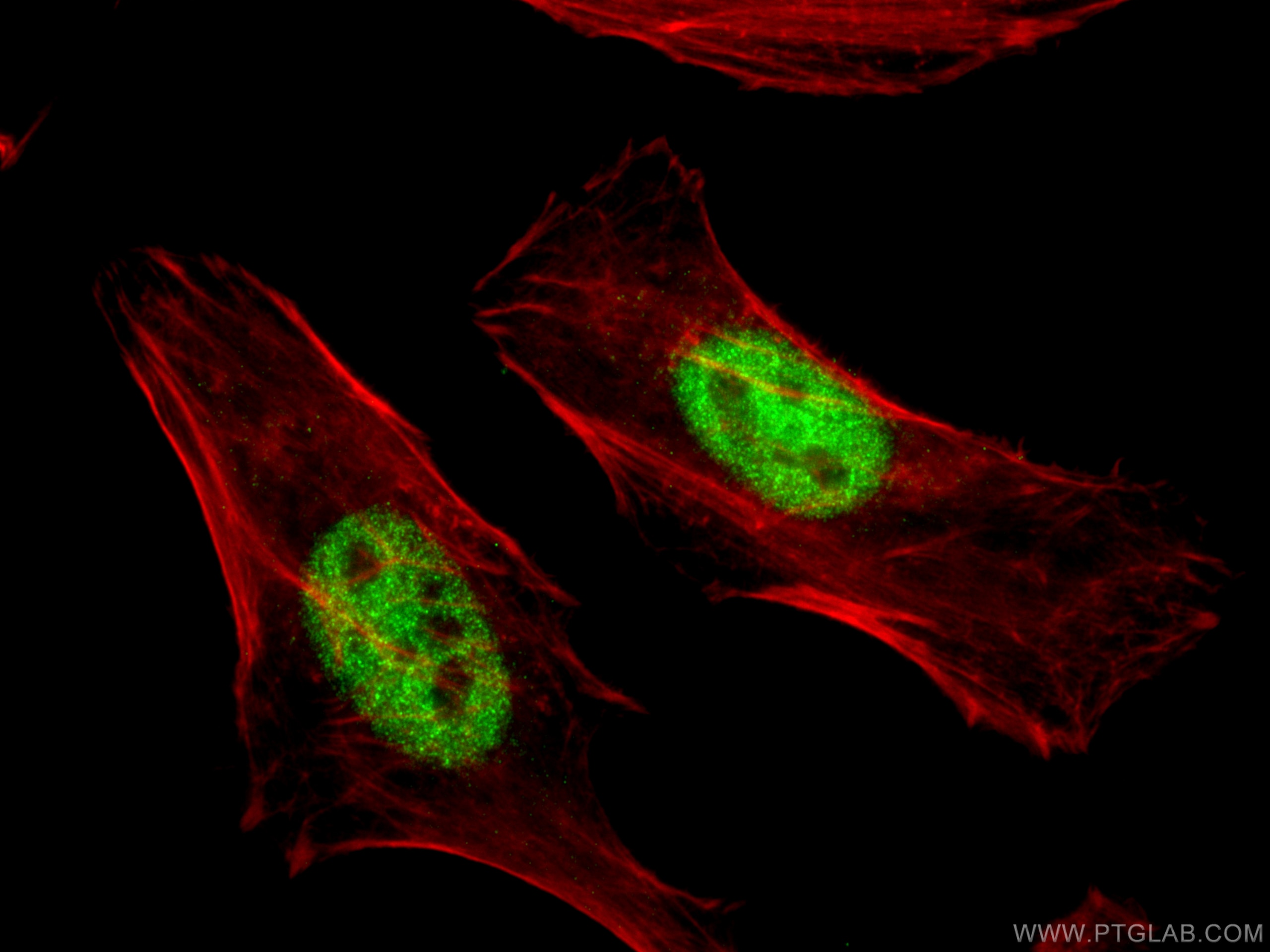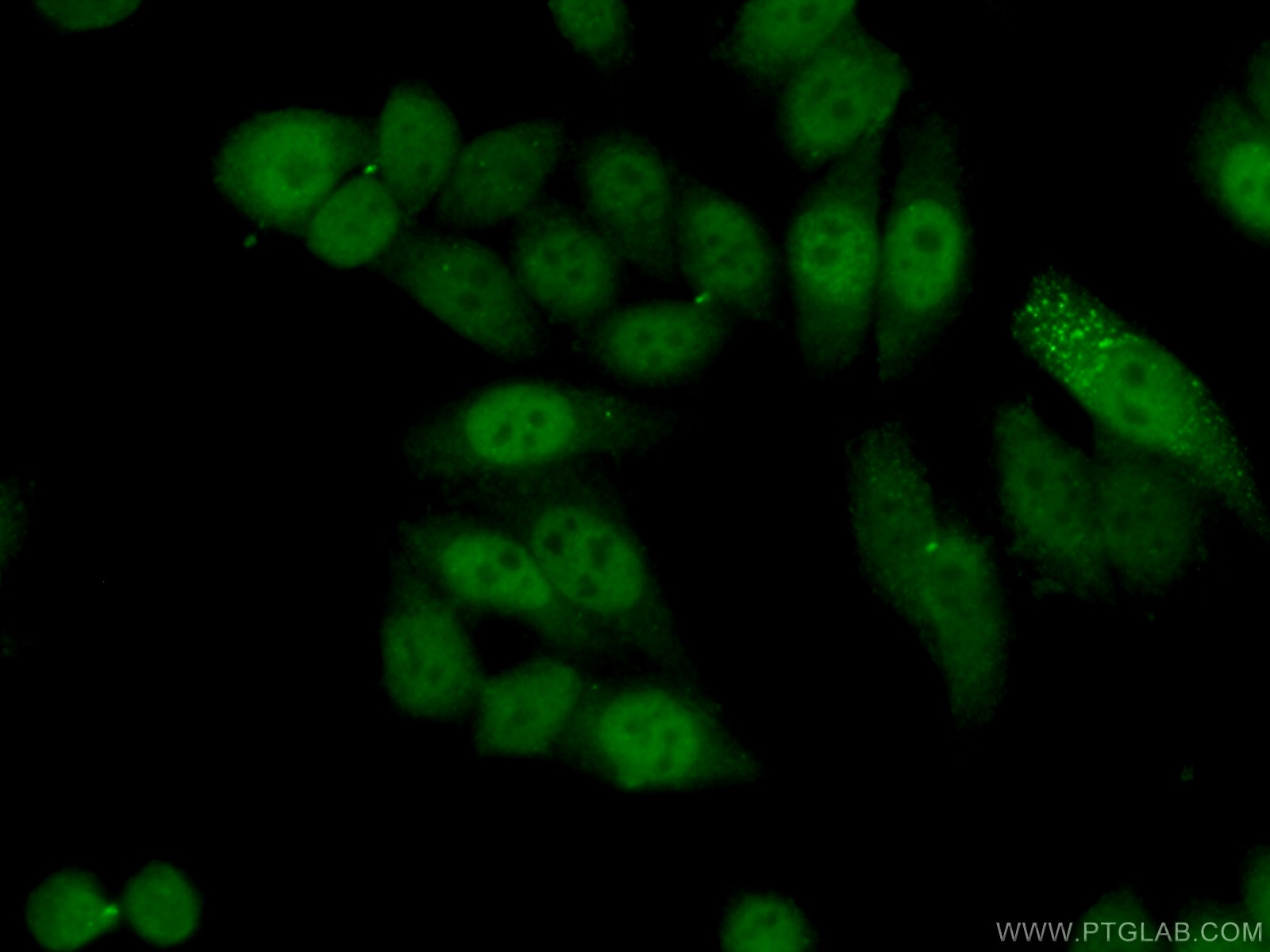MAPKAPK2 Polyklonaler Antikörper
MAPKAPK2 Polyklonal Antikörper für WB, IHC, IF/ICC, ELISA
Wirt / Isotyp
Kaninchen / IgG
Getestete Reaktivität
human, Maus
Anwendung
WB, IHC, IF/ICC, ELISA
Konjugation
Unkonjugiert
Kat-Nr. : 13949-1-AP
Synonyme
Galerie der Validierungsdaten
Geprüfte Anwendungen
| Erfolgreiche Detektion in WB | HeLa-Zellen, A549-Zellen, Maus-Kolongewebe, Maus-Skelettmuskelgewebe |
| Erfolgreiche Detektion in IHC | humanes Mammakarzinomgewebe, humanes Nierengewebe Hinweis: Antigendemaskierung mit TE-Puffer pH 9,0 empfohlen. (*) Wahlweise kann die Antigendemaskierung auch mit Citratpuffer pH 6,0 erfolgen. |
| Erfolgreiche Detektion in IF/ICC | HeLa-Zellen |
Empfohlene Verdünnung
| Anwendung | Verdünnung |
|---|---|
| Western Blot (WB) | WB : 1:500-1:1000 |
| Immunhistochemie (IHC) | IHC : 1:50-1:500 |
| Immunfluoreszenz (IF)/ICC | IF/ICC : 1:200-1:800 |
| It is recommended that this reagent should be titrated in each testing system to obtain optimal results. | |
| Sample-dependent, check data in validation data gallery | |
Veröffentlichte Anwendungen
| WB | See 9 publications below |
| IHC | See 2 publications below |
Produktinformation
13949-1-AP bindet in WB, IHC, IF/ICC, ELISA MAPKAPK2 und zeigt Reaktivität mit human, Maus
| Getestete Reaktivität | human, Maus |
| In Publikationen genannte Reaktivität | human, Maus |
| Wirt / Isotyp | Kaninchen / IgG |
| Klonalität | Polyklonal |
| Typ | Antikörper |
| Immunogen | MAPKAPK2 fusion protein Ag5060 |
| Vollständiger Name | mitogen-activated protein kinase-activated protein kinase 2 |
| Berechnetes Molekulargewicht | 400 aa, 46 kDa |
| Beobachtetes Molekulargewicht | 47-50 kDa |
| GenBank-Zugangsnummer | BC036060 |
| Gene symbol | MAPKAPK2 |
| Gene ID (NCBI) | 9261 |
| Konjugation | Unkonjugiert |
| Form | Liquid |
| Reinigungsmethode | Antigen-Affinitätsreinigung |
| Lagerungspuffer | PBS mit 0.02% Natriumazid und 50% Glycerin pH 7.3. |
| Lagerungsbedingungen | Bei -20°C lagern. Nach dem Versand ein Jahr lang stabil Aliquotieren ist bei -20oC Lagerung nicht notwendig. 20ul Größen enthalten 0,1% BSA. |
Hintergrundinformationen
MAPKAPK2(mitogen-activated protein kinase-activated protein kinase 2) is also named as MK2, MAPKAP-K2, MK-2 and belongs to the CAMK Ser/Thr protein kinase family. MAPKAPK2, one of several kinases directly phosphorylated and activated by p38 MAPK, plays a central role in the inflammatory response and is in the nucleus of unstimulated cells and moves rapidly to the cytoplasm after stimulation(PMID:12171911). It is also involved in many other cellular processes including stress responses, nuclear export, gene expression regulation and cell proliferation. Multiple residues of MAPKAPK2 are generally phosphorylated in vivo in response to stress, but only 4 residues(Thr25, Thr222, Ser272, and Thr334) are phosphorylated by p38 MAPK in vitro(PMID:22351694). It has 2 isoforms produced by alternative splicing and the range of the molecular weight is 42-60 kDa according to the references(PMID:10666409; 11328854;8995385).
Protokolle
| Produktspezifische Protokolle | |
|---|---|
| WB protocol for MAPKAPK2 antibody 13949-1-AP | Protokoll herunterladen |
| IHC protocol for MAPKAPK2 antibody 13949-1-AP | Protokoll herunterladen |
| IF protocol for MAPKAPK2 antibody 13949-1-AP | Protokoll herunterladen |
| Standard-Protokolle | |
|---|---|
| Klicken Sie hier, um unsere Standardprotokolle anzuzeigen |
Publikationen
| Species | Application | Title |
|---|---|---|
Mol Cancer Res Sophoridine inhibits human colorectal cancer progression via targeting MAPKAPK2. | ||
Food Funct L-Theanine mediates the p38MAPK signaling pathway to alleviate heat-induced oxidative stress and inflammation in mice. | ||
Toxicol Appl Pharmacol p38 MAPK-DRP1 signaling is involved in mitochondrial dysfunction and cell death in mutant A53T α-synuclein model of Parkinson's disease. | ||
Int J Mol Med Aryl hydrocarbon receptor inhibits inflammation in DSS‑induced colitis via the MK2/p‑MK2/TTP pathway. | ||
Brain Res Bull The p38 mitogen activated protein kinase regulates β-amyloid protein internalization through the α7 nicotinic acetylcholine receptor in mouse brain. | ||
Cell Rep MK2 promotes Tfcp2l1 degradation via β-TrCP ubiquitin ligase to regulate mouse embryonic stem cell self-renewal. |
